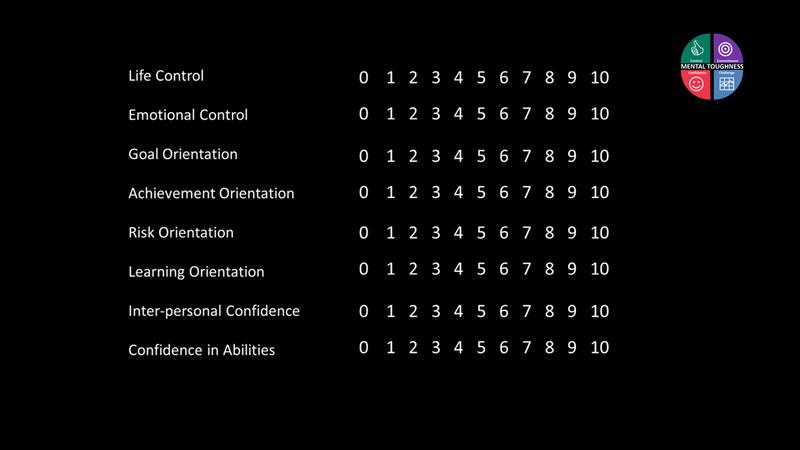Measuring Mental Toughness
Measuring Mental Toughness
I come across a lot of people who are “globally” mentally tough but with “specific” issues or weaknesses; and it’s often the weakness that “let’s them down” in difficult situations.
Mental Toughness is a “A personality trait which determines, in a large part, how people respond to challenge, stress and pressure, irrespective of their circumstances”
It is made up from four key components; called the 4 Cs – Control, Commitment, Challenge and Confidence.
Each component is made up from eight “constructs”
- Life Control
- Emotional Control
- Goal Orientation
- Achievement Orientation
- Risk Orientation
- Learning Orientation
- Interpersonal Confidence
- Confidence in Abilities
You can have very high “overall” Mental Toughness while being very low in one of the eight elements that makes up the 4C’s Mental Toughness model
The Mental Toughness Questionnaire MTQPlus is an extremely important and useful tool in identifying areas for developing your Mental Toughness; it measures both your “overall” Mental Toughness and each of the eight sub-elements – all on a scale from 1 (very low) to 10 (very high)
Imagine someone with eights and nines (even tens) everywhere (Life Control, Achievement Orientation, Confidence in Abilities, etc), except for Emotional Control; even if the person has very low levels of Emotional Control; their overall Mental Toughness will come out in the high zone; not necessarily a nine or ten but probably an eight – which sounds very comforting.
Clearly, someone with the above profile will probably be out there looking for and taking on challenges, they will probably set themselves clear objectives and be determined to succeed and they will probably be confident in their abilities; however …………………..; however, when it all start to go horribly wrong, their lack of Emotional Control can become a real handicap – shouting, tantrums, name calling and, possibly, even worse.
Emotional outbreaks are normal, we all have to face situations that get “the better of us” and “letting off steam” is not always a bad thing, however ………………………..; however, when it becomes regular it can start to tarnish your reputation.
I have focused here on low Emotional Control. However, we all have our Achilles Tendon; someone could have high scores everywhere except in one of the other elements; very low Risk Orientation or very low Interpersonal Confidence, etc.
They will not show the same behaviours as someone with low Emotional Control, but each “low” will manifest itself in some manner, particularly in difficult or stressful situations, and hinder optimal performance.
Low Achievement Orientation can lead you to “giving up” early and not succeeding, low Life Control can lead you to being “led by the nose” into challenges that are not really for you, low Interpersonal Confidence can lead you to backing down when you are challenged and low Risk Orientation can lead to missed opportunities.
We are all only as strong as our weakest link.
Be the first to post a message!
